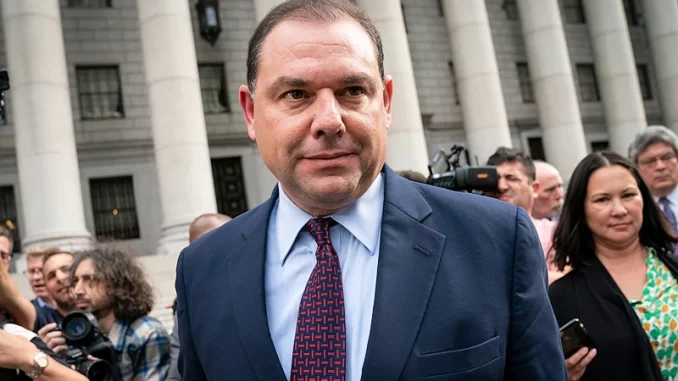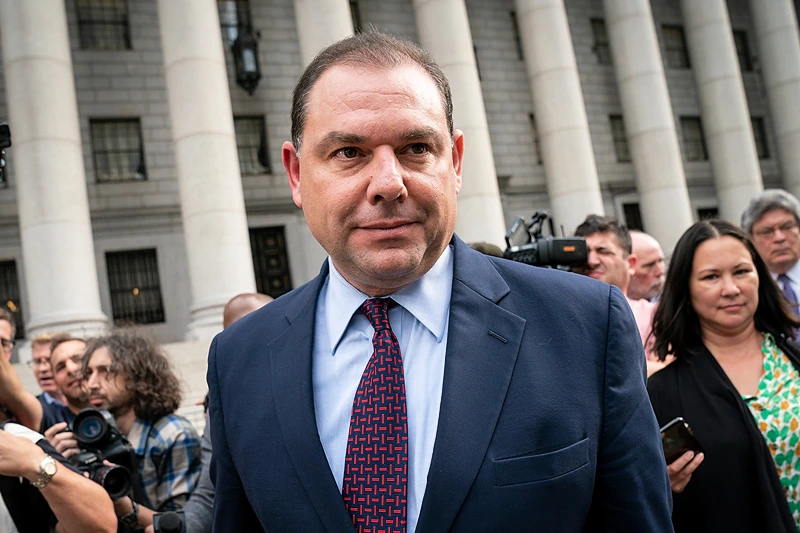

OAN Brooke Mallory
UPDATED 2:35 PM – Thursday, May 11, 2023
The Supreme Court has sided with Joseph Percoco, a former adviser to former New York Governor Andrew Cuomo, who said on Thursday that a federal anti-bribery statute should not have been applied to imprison him.
Advertisement
The court’s decision was a continuation of a recent pattern that has limited the government’s ability to bring cases against defendants under certain public corruption acts.
In a separate case on the same day, a well-known Buffalo developer who received a $750 million project to enhance the city as part of a Cuomo plan was also successful in his dispute that the court came to a consensus on.
Louis Ciminelli, the man in question, was found guilty of property fraud and participating in the bid-rigging scheme. The justices had overturned a lower court’s decision against Ciminelli based on a legal argument that the administration had later abandoned. Both decisions received unanimity.
“They’re two additional data points of how hostile the current Court is to expansive interpretations of federal corruption and anti-bribery laws and to aggressive white-collar prosecutions by federal prosecutors,” said Steve Vladeck, an analyst and professor at the University of Texas School of Law. “The stakes of these cases aren’t likely to be high, but the stakes of this broader pattern could be enormous, especially so long as Congress, which could clarify the reach of all of these statutes, continues to sit on the sidelines.”
The justices have recently curtailed the use of the legislation in high-profile instances involving former Enron CEO Jeff Skilling and former Virginia Governor Robert F. McDonnell.
The “honest services” wire fraud statutes, which made it illegal for public employees to defraud the government, were put to the test in the Percoco case.
From 2011 through 2016, Percoco worked as Cuomo’s top adviser, with the exception of a few months in 2014 when he oversaw the reelection effort. He told others around him at the time that he hoped to return to the government eventually. The government argued that he continued to have access to his offices while working on the campaign and used them for official activities.
Percoco had received $35,000 from a real estate developer while he was running for office to exert pressure on a state agency over labor law-related matters to which he was accused of defrauding honest services.
However, his attorney argued that private citizens did not have a fiduciary duty to the public and did not occupy an elected or government position, therefore, they are exempt from the statute.
“When a public official accepts money to convince the government to do something, we call him a crook… But when a private citizen accepts money to convince the government to do something, we call him a lobbyist,” said Yaakov M. Roth, Percoco’s attorney.
“Pressure counts only when one uses his official position for private gain,” he maintained.
Percoco had accepted the payments while serving as a “former, future, and functional public official,” according to a government attorney, who claimed that he had continued to have key access to meetings held inside the government and may be charged with fraud. Solicitor General Elizabeth Prelogar stated that he did not need to have “formal employment” when she addressed the court.
In a written opinion, Justice Samuel Alito stated that the jury’s instructions regarding what constitutes honest services fraud for a private person were incorrect and “too vague.”
The jury was informed that Percoco would possibly be found guilty if it ever came out that he “dominated and controlled any government business” and if “people working in the government actually relied on him because of a special relationship he had with the government.”
More specificity was required in the jury instructions, according to Alito.
“Is it enough if an elected official almost always heeds the advice of a long-time political advisor?” he asked. “Is it enough if an officeholder leans very heavily on recommendations provided by a highly respected predecessor, family member, or old friend? We conclude that this is not the proper test for determining whether a private person may be convicted of honest-services fraud, and we therefore reverse and remand for further proceedings.”
It is theorized that the decision of the court could result in Percoco’s conviction being overturned, sending the case back to the lower court. Percoco reportedly has additional convictions against him, but the court is only evaluating one based on “honest services.”
Stay informed! Receive breaking news blasts directly to your inbox for free. Subscribe here. https://www.oann.com/alerts

